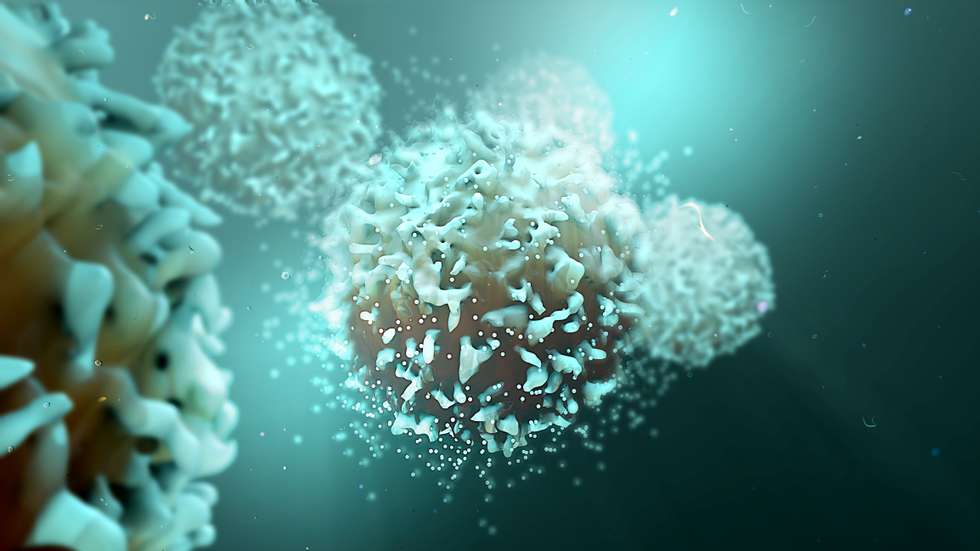A study published this Friday on cancer mutations that cause drug resistance found that they group into four main categories and identified possible more effective therapies to combat the disease.
The research, carried out by scientists from the British Wellcome Sanger Institute, the European Bioinformatics Institute and the Open Targets genetic data platform, was published this Friday in the scientific journal Nature Genetics.
Cancer treatments try to kill it, but tumor cells undergo mutations, changes in DNA, to become resistant to therapies, which is one of the main problems for patients.
The researchers used the CRISPR and other single-cell genomic gene editing techniques to investigate the impact of various drugs in human cancer cell lines and organoid cell models (groups of cells grown in the laboratory that resemble organs).
They tried it like this Mapping the genetic landscape of drug resistance in cancer, with a focus on colon, lung, and Ewing sarcoma. (mainly affects the bones), all with a tendency to develop resistance and with limited second-line treatments.
When cancer becomes resistant to initial treatment, so-called second-line therapies are used, and there is the potential for new options to be discovered at this level if it is understood which specific molecular changes cause resistance.
“Toward Cancer cells developing resistance to treatments are a big problemand have a quick way to Identifying these mutations in patients and understanding how to combat them is essential for cancer treatment. Our study details how the mutations fall into four different groups, which may require different treatment plans. (…) Using cutting-edge genetic techniques, we have begun to develop a rapid, large-scale way to understand drug resistance and hope to find new targets for second-line treatments,” said lead author of the work, Matthew Coelho, from Wellcome. Sanger Institute, cited in an article published on the institution’s website.
Based on the impact of the change in DNA, the team of researchers drug mutations discovered (when some cancer cells use the drug that should kill them to grow), conductive (cells avoid the pathway that the drug may have blocked and use a different one) and variants of drug sensitization. (cancer more sensitive to certain treatments, which may indicate which patient would benefit from specific medications).
They used 10 cancer drugs currently prescribed or in clinical trials to see if any of them could be repurposed or combined to combat resistance and reduce the time it takes for potential new treatments to reach the clinical trial stage.
The authors of the study also believe that it could also help accelerate research by pharmaceutical companies into the next generation of cancer inhibitors, which could better prevent drug resistance, according to the Spanish news agency EFE.
Source: Observadora
